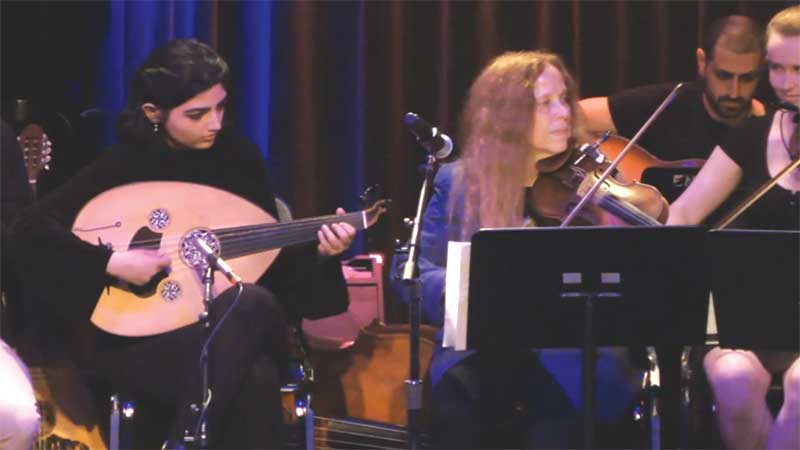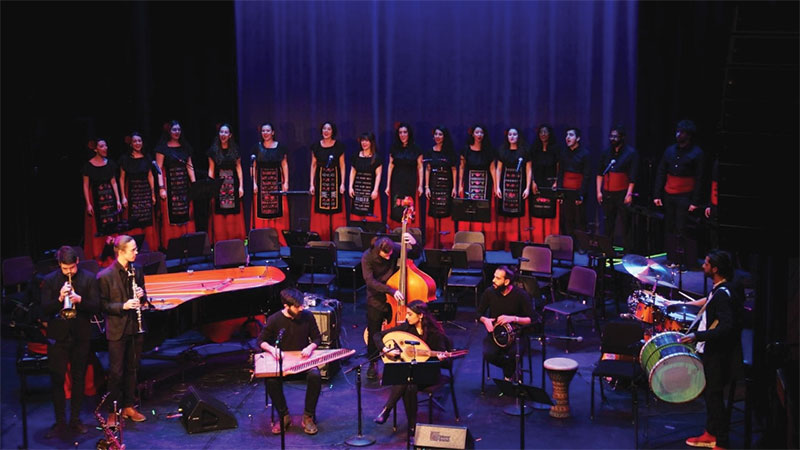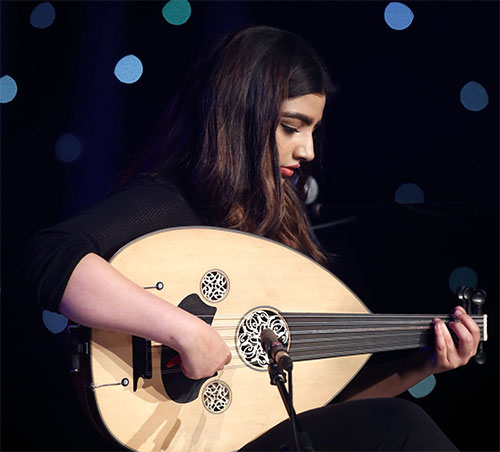Her apparent fervour for life and music is what strikes you, when you speak to Amal Waqar, a notable Omani Oud player, with a multicultural background. Her father is Indo-Omani and her mother is Colombian-American, which she describes as a ‘spicy blend of cultures’; one that has influenced her outlook towards life. Currently based in the US, Amal was born and raised in Muscat, and was exposed to multiple environments right from a very young age. “I moved around to multiple schools throughout childhood; finally, completing my early education at the American-British Academy, which was rich in diversity,” she explains.
Music has always been a part of her life, but it was during high school that she first discovered her way to an oud and realised she loved it. From then on, she started working hard, and the rest, as they say, is history. Her most positive memories growing up are, not surprisingly, music. She remembers driving around in cars and singing her heart out. She is inspired by her social circle, especially her friends who are committed, passionate and open to the experience. “It’s invigorating to learn with others. To me, inspiration also comes from people who are totally and unapologetically free to be themselves in their chosen field,” she states.

Amal was fortunate to receive positive support from her ‘immediate family’, but not from her extended family who raised their eyebrows of concern, given the fact that oud musicians are generally men. But she has risen above those constraints and aces her performances with a ‘let go and let the music be the focus’ strategy. For, she knows, failing to do so would result in what she labels as ‘paralysis from over-analysis’.
Pointing out that change is a continuous process, she says,
“I see this in the kind of music I am listening to; the issues I am solving, the people I am spending time with and the challenges I am engaging with along with the state of my creative mind. I am always in transition.”
When asked who her favourite musical artists were, Amal Waqar states, “This seems to change depending on when you ask me, but I am consistent with my favourites, including Dhafer Youssef, Kamilya Jubran and Tigran Hamsayan.” She recently started exploring Bjork, who she absolutely adores. On the other hand, there are musicians like the Palestinian-American oud master Simon Shaheen and Lebanese American percussionist Jamey Haddad, whom she has learnt from. As she puts it, “Those two men have changed life”. Acknowledging that she has been influenced by old records and tapes, Amal states, “Even though I do not regard myself as a traditional artist, I have certainly learnt a lot from listening to the classics. Any old recordings I find of Gulf-based oud players and singers are new food for me. I love the recordings, whether it is the quality of sounds, the compositions, the arrangements, material and the characters. I am trying to start a vinyl and cassette collection at the moment for this very reason.”
Talking about the music scene in Oman, she comments: “I think it’s really starting to grow now, especially in the DIY/independent category, considering that hardware and software are easily accessible to creative individuals. Personal representation is great.” But in comparison to the US, she points out that the U.S definitely has more varieties in terms of music perspectives and styles due to its size. “It is a multicultural haven and has a rich music history. On the other hand, in Oman, there are limited spaces where music can happen. Since Oman and its art scenes are new, the potential of new horizons and uncharted territory is extremely inspirational, fresh and groundbreaking,” she adds.
Her playing the oud in the U.S is unique since, most of the times, Americans are clueless about it. She is playing the role of a cultural ambassador by promoting such a beautiful musical instrument. “I feel I often inhabit the role of an educator when I really want to manifest my artistic vision. The support certainly exists in the US, but it’s not glamorous – but does that have to be the case?” she queries.

Faced with obvious challenges, Amal believes her case to be similar to women anywhere in the world who are facing the scrutiny from society, especially in a male dominated space. Pinpointing the dire need to inform the youth about what choices are available when they grow up and what is treated as ‘acceptable’ for young women mainly, she states: “It is pivotal for the society to overcome this cultural stigma which would enable us to find more economical, cultural and personal development in all fields.”
Amal Waqar’s advice for young women starting their careers: “The grace and integrity with how you carry yourself through the hardships, makes you a better individual to serve your purpose.”

